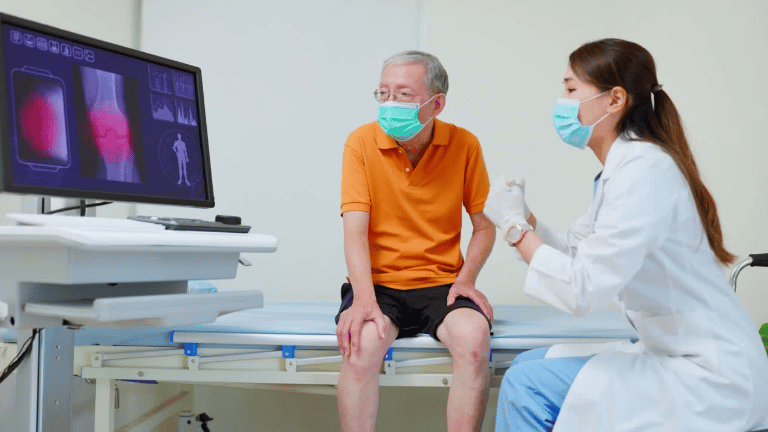Application
Wearable heating technology helps seniors enjoy gentle, effective heat therapy throughout their daily routine.


Heat Therapy for Seniors: How Wearable Heating Technology Supports Daily Comfort
As the population ages, more seniors are incorporating heat therapy into their daily routines. Whether it’s for relieving chronic discomfort, warming up before physical activity, or simply combating cold limbs, heat therapy offers a non-invasive way to support well-being.
However, for heat therapy to become a consistent and comfortable habit, the form factor and usability of the solution matter. That’s where wearable heating technology comes in—offering a practical, lightweight alternative that fits into everyday life.
Common Needs for Heat Therapy Among Seniors
Older adults often experience physical changes such as:
- Joint stiffness and chronic pain
- Reduced muscle flexibility
- Poor peripheral circulation
- Increased sensitivity to cold environments
Gentle, continuous heat can help improve circulation, reduce physical tension, and support better mobility—especially during morning routines or at night before sleep.
Heat therapy is also increasingly used in daily preventive wellness practices. Paired with light stretching or low-impact movement, warmth helps prepare the body for motion and may reduce the risk of strain or fatigue.
Advantages of Wearable Heating Technology
Recent developments in PET-based printed heaters have made it possible to design heating solutions that are thinner, softer, and more flexible than traditional pads. Key benefits include:
- Ultra-thin and conformable to curved surfaces
- Seamless integration into garments or accessories
- Safe, low-voltage operation (e.g., 5V USB, 12V standard)
- Rapid and even heating for instant comfort
- Scalable for different body areas or usage sizes
Compared to bulky electric pads, flexible heating films reduce weight, simplify storage, and increase adaptability in mobile or home-care environments.
Practical Use Scenarios
Wearable heaters designed for seniors are now being integrated into various applications such as:
- Neck and shoulder wraps for seated use at home
- Heated back belts for lumbar support and relaxation
- Knee sleeves or calf wraps for promoting lower-body circulation
- Portable USB-powered pads for use on the go or at a care facility
With modular designs, heating elements can be embedded into products with precise fit and optimized comfort, delivering targeted heat to the areas where it's most beneficial.
Implications for Medical and Assistive Devices
As flexible heating modules evolve, they are becoming key functional components—not just accessories. For healthcare product designers and assistive device manufacturers, this opens new possibilities:
- Differentiated product features (e.g., heated mobility aids)
- Opportunities to combine heating with future sensing or controls
- Better alignment with elder-care needs in both home and institutional settings
Designs that follow medical-grade safety principles—low voltage, stable output, compact format—can integrate well into rehabilitation and long-term care environments.
Making Heat Therapy a Routine Part of Daily Wellness
Wearable heating is redefining heat therapy as a wellness tool—not just a short-term remedy. Through smart integration, standardized design, and accessible power sources, seniors can receive gentle heat anytime, anywhere, without interrupting their normal routines.
This shift supports the growing demand for low-effort, non-pharmaceutical wellness strategies in aging populations and empowers care providers to deliver better daily comfort through compact, efficient solutions.
Latest Insights
Collaboration Begins Here.


